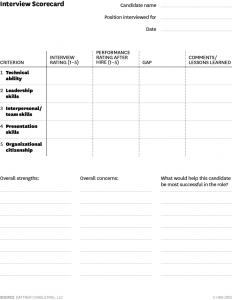
Technology’s ability to deliver a competitive advantage is driving digital transformation in nearly every industry. From healthcare to manufacturing, it’s hard to find an area of business that hasn’t been affected by sensors, digital records, or automation.
But what does this mean? We’re on the edge of a fundamental shift in how organizations will operate. The new business landscape will require different skills, shifts in organizational structure, and innovative approaches to problems.
Over the next few months, I plan to dig deep into those topics and look at what it will take to successfully and effectively lead in the future. To kick the series off though, let’s first examine what tomorrow may look like and briefly dive into what that means for the structure of organizations.
A peak into the future
In the next five to 10 years, organizations will automate manual tasks and decision making as the costs of machine automation becomes less expensive and AI technology advances its ability to fulfill many human requests. At the same time, consumers will come to expect elevated customer service and place a high value on human interaction. As we digitize processes from sales to customer service, it is paving the way to new human/machine co-existence in the workforce. Technology also enables us to learn and discover new opportunities faster.
More than any other trend or technological movement, analytics will change the way business operates as we know it. The power to go through massive amounts of data and learn from it is breath-taking. When you think how long it took in the past for people to tabulate and analyze data compared to today’s processes, the progress is astounding. Fast analytics will do to science and business what the microscope did for biology. It is our magnifying glass to see what we could not see before.
Shifting how we think and operate
Much of the technology needed to carry organizations into the future already exists. We can get to Mars today with technologies that were developed 20 years ago. Airbags are the landing gear for the Mars rover. It’s not necessarily that we need to develop new technologies, it’s that we need to expand how we applying them, and that requires a different way of thinking. Using technology to its full potential requires educated and skilled people so we must improve the quality of education on a mass scale. If the machine is smarter than the human in the workplace, then we have failed to educate.
If we can shift how we think and apply the power of automation, analytics, and AI by 2035, I expect that we’ll be breaking new frontiers and conquering new spaces that create entirely new businesses and business models. And while machines will increase competition in the next five to 10 years, conquering the new frontiers will require a shift to cooperation.
As organizations strive to adapt to technological changes, the speed of transition is driving flatter organizational models. Instead of the rigid hierarchies once required to operate efficiently, organizations must begin to operate the other way around. Hierarchies slow the operations of businesses. This shift is a monumental change in organizational operations and supports the democratization of decision making.
And in the world of democratized decisions and machine-driven decisions, the biggest hurdle will then become how we solve the moral problems associated with decision making. While humans have moral values, machines do not. How do we teach morality to machines? We do not know how to code the autonomous car to make a decision around whose life to save in the case of an accident. Imagine that the autonomous car can swerve left or right and in one case hit a child and in the other a pregnant woman. We do not know how humans make choices in these dilemmas. But if we code the choice then we have taken a moral stand – more value on one life versus another. How do we begin to tackle that?
Tune in over the next few months as I dive into these issues and other topics central to the evolution of leadership in the future. Also, please join the conversation by leaving a comment below with your thoughts on how technology will impact tomorrow’s organizations.
Business & Finance Articles on Business 2 Community(122)






